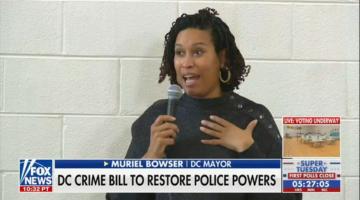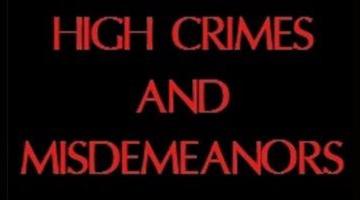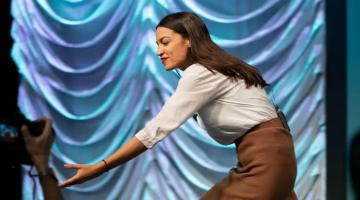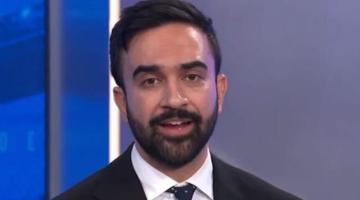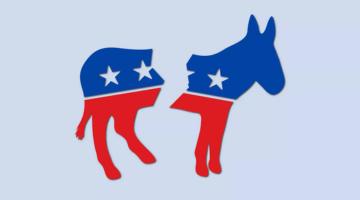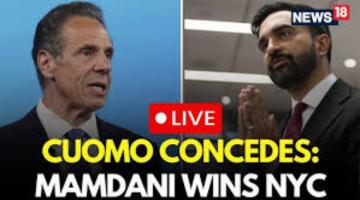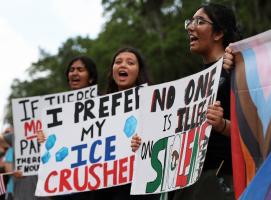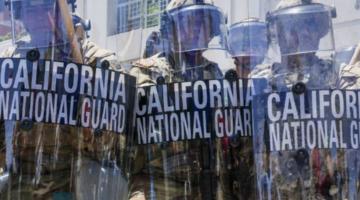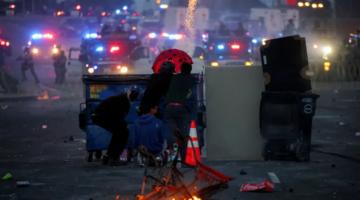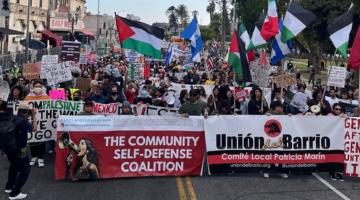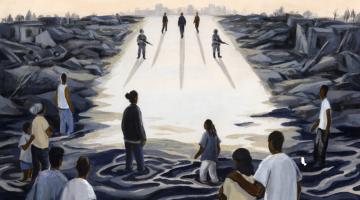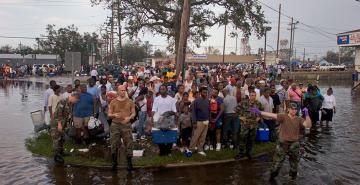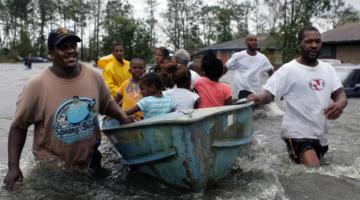The Poor People’s Army has a permit to march to the steps of the Democratic National Convention in August, but now Chicago authorities want to have a “conversation” with them.
I spoke to Cheri Honkala of the Poor People's Army, also known as the Poor People's Campaign for Economic Human Rights.
ANN GARRISON: Cheri, tell us about what you experienced in Milwaukee at the Republican National Convention.
CHERI HONKALA: I’ve never experienced anything like it. I attempted to serve an arrest warrant on Trump and the rest of the Republican Party for crimes against humanity and I was arrested. I’ve been arrested over 200 times but this was more extreme than any of those. First they took me to an empty warehouse. Then they put me in a prison bus and took me to their old prison. I was the only prisoner there but there were 200 military police officers. I have no idea why they took me there.
They took me to a back area with windows where I finally went to sleep on the floor. Then when they woke me up, they put me in another prison bus and took me to an empty warehouse district and told me to get out. I had no money and no phone and it was pouring rain with lightning and thunder.
I walked towards the lights and finally made it to a Mexican restaurant and managed to convince them that I was not some crazy person. Then they let me use their cell phone, so I called and got someone to pick me up.
AG: Were these military police officers in town for the convention?
CH: I’m sure they were there for the convention but they were all just sitting there. I was the only prisoner and they walked me through that room of 200 military police.
AG: Did they book you?
CH: Yes, they booked and fingerprinted me and at the end of the night they gave me a citation.
AG: So you have to pay a fine.
CH: Yes.
AG: Did the protest groups there—those protesting against the war in Gaza, police brutality, the repeal of Roe v. Wade, and more—come together?
CH: Yes, we all got together for a rally, but Milwaukee summarily pulled our permit an hour before the event. We had to scramble to find another venue, but we did. Some people didn’t get notice of the change in time, but it was still very successful. There was a Palestinian rapper and a lot of people from the Palestinian, Mexican, and African American communities.
AG: So now you’re going to be marching from Milwaukee to Chicago between August 3 and August 18th?
CH: That’s right. First we’ll hold a memorial for the man who was murdered by police during the convention.
AG: A Black homeless man?
CH: Right, a Black homeless man.
AG: Will you have medical and legal help marching with you from Milwaukee and Chicago?
CH: We have some medical and legal help lined up, but we can always use more, and if anyone wants to join or support our march, they can find the route on our website. We will be marching eight to 10 miles a day, for 90 miles. We’ll have educational events and press conferences along the way, and we’ll be arriving on March 18.
We’ve organized a concert for that night with rapper Peach, Rebel Diaz, and other artists.
AG: And what will you be doing on the 19th?
CH: We will be marching to the steps of the convention where we plan to attempt a citizen’s arrest as we did in Milwaukee.
AG: Last time we talked, you told us that you got a permit to march right up to the convention steps. You said the city denied your permit application but then failed to respond to your appeal in time, which gave you the legal right to march to the convention steps. Has the City of Chicago tried to find a way to revoke that permit?
CH: Just today our lawyers got a call from Chicago authorities saying they want to “have a conversation” with us a few days from now.
AG: What will you do if they tell you that they’re revoking your permit and rerouting you on whatever grounds they can come up with?
CH: We plan to nonviolently exercise our First Amendment rights as planned. We have done everything legally and in good faith. We applied for our permit and they gave us a permit. We plan to march, in accordance with that permit, right up to the convention steps.
We have a track record of holding mass marches with upwards of 10,000 people and they have always been nonviolent.
AG: Will you be joined by third party or independent presidential candidates?
CH: Yes, we’ll be joined by Jill Stein, Claudia de la Cruz, and Cornel West.
AG: Will you be camping in one of the parks in Chicago? The city initially said that protestors would be confined to Grant Park, which is three miles from the convention center, but they recently made concessions to the Coalition to March on the DNC 2024, allowing them to rally in Union Park.
CH: We will be setting up an encampment, even though the Supreme Court just ruled that sleeping in public space is a crime. We can’t afford to stay at the Hilton or the Sheraton, so that’s what we’re going to do.
AG: As I said, the Coalition to March on the DNC were given the right to rally in Union Park, closer to the convention than Grant Park. The City also conceded a permit for a closer march route, but it goes through narrow back streets and doesn’t get to the convention steps, so they’re still pushing for more. Are you coordinating with them?
CH: Yes.
AG: You live in one of the toughest neighborhoods in the country, Kensington, Philadelphia. Tell us about the conditions there that you’re protesting.
CH: President Trump himself had someone from Kensington speak at the RNC and said that he was going to solve the problems here and in other devastated city neighborhoods. But that person was a photographer who creates what we call poverty porn, and neither he nor Trump said anything about what they would actually do in our neighborhood and others like ours.
Kensington is, as you said, one of the worst neighborhoods in America. It really is a war zone, and the authorities’ response is really about locking people up and not providing necessary services. Every day when I go out my front door and every night when I come home, there are ambulances, there are people being carried away because they’ve overdosed and died. There’s gunfire off and on all day. I have helicopters above my house. Kids here have post traumatic stress disorder because it really is a war zone.
More Americans have died because of the opiate crisis than died in the Vietnam War. Millions of dollars have come into Philadelphia, supposedly to help with recovery programs and housing and services here, but it never makes it to the people.
Something has to fundamentally change in this country, but we’ve concluded that we can’t wait around expecting authorities, or either of these two corporate parties, to save us. The Poor People’s Army has just put together a book called “Takeover, a Human Rights Approach to Housing,” which tells people how to take over abandoned government properties to house themselves and stay alive.
AG: Given all that, what made you decide to march on the conventions?
CH: I think that we have a responsibility to make ourselves heard when reporters from around the world come into one area. So we intend to be out there, doing whatever we have to do to be heard. We know we’re not going to be on CNN or the cover of some magazine, but maybe other media from around the world will pay attention to us. And we really appreciate outlets like Black Agenda Report that will lift up our voices when the corporate media won’t.
Ann Garrison is a Black Agenda Report Contributing Editor based in the San Francisco Bay Area. In 2014, she received the Victoire Ingabire Umuhoza Democracy and Peace Prize for her reporting on conflict in the African Great Lakes region. She can be reached at ann@anngarrison.com. You can help support her work on Patreon.

